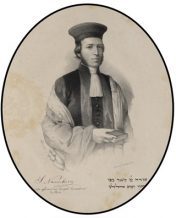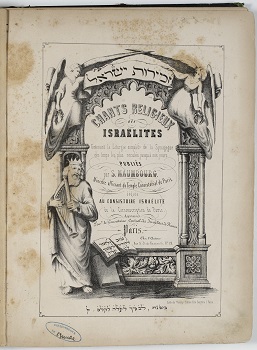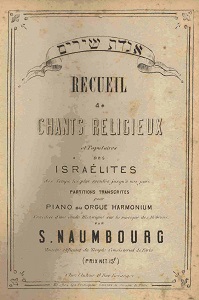
By Hervé Roten
Born on March 15, 1817 in Dennenlohe, in Bavaria, Samuel Naumbourg came from a long lineage of famous cantors. As he entered the synagogue at a very young age, he learned the cantorial art in South Germany. Later on, he studied singing and composition in Munich. He took part in the choir of the town’s new community, under the supervision of Maier Kohn.
A pioneer in ethnomusicology, he started to gather and to write an important part of the Ashkenazi oral tradition of South Germany.
Called to Strasbourg, he conducted the community’s choir from 1838 to 1843, and then in Besançon from 1843 to 1845.

Between 1847 and 1874, Naumbourg published four synagogal music collection books for soloist, choir, and sometimes accompaniment of the harp, the piano or the organ (Zemirot Israel, Religious Songs of the Israelites, vol. I-II, 1847 ; Zemirot Israel, Religious Songs of the Israelites, vol. III, 1857 ; Chirei Kodech, New Religious Collection for the Jewish Cult, 1864 ; Agoudat chirim, Collection of Religious and Popular Jewish Songs, 1874). These collections comprise mainly his own compositions, but also arrangements of traditional tunes and other composers works (Lovy, Fromental Halévy, Alkan …).

*Excerpt from Hervé Roten’s article, « The musical heritage of the Great Synagogue of La Victoire », La synagogue de la Victoire, 150 ans du judaïsme français, éditions Porte-plume, 2017
Yigdal, Passover Evening Service – Samuel Naumbourg



